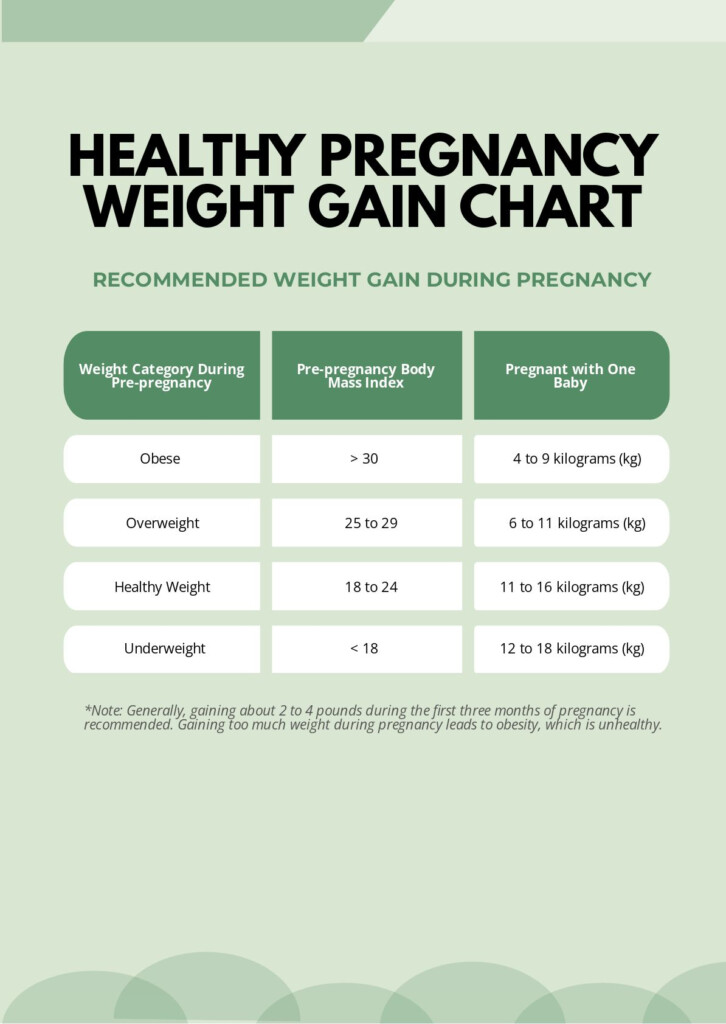Pregnancy is a crucial time for a woman to maintain a healthy weight. Gaining weight within the recommended range is essential for the well-being of both the mother and the baby. Excessive weight gain can lead to complications such as gestational diabetes, high blood pressure, and even preterm birth. On the other hand, inadequate weight gain can result in low birth weight and other health issues for the baby.
It is important for pregnant women to follow a healthy diet and exercise regularly to ensure they are gaining weight at a steady and appropriate rate. Consulting with a healthcare provider to monitor weight gain throughout the pregnancy is also crucial.
Healthy Weight Gain Chart For Pregnancy
Healthy Weight Gain Guidelines
According to the Institute of Medicine (IOM), the recommended weight gain during pregnancy depends on the woman’s pre-pregnancy weight. Here are the general guidelines:
- Underweight (BMI less than 18.5): 28-40 pounds
- Normal weight (BMI 18.5-24.9): 25-35 pounds
- Overweight (BMI 25-29.9): 15-25 pounds
- Obese (BMI 30 or higher): 11-20 pounds
It’s important to note that these are just general guidelines and may vary depending on individual circumstances. Pregnant women should work closely with their healthcare provider to determine the appropriate weight gain for their specific situation.
Tips for Healthy Weight Gain
Here are some tips to help pregnant women achieve healthy weight gain:
- Eat a balanced diet rich in fruits, vegetables, whole grains, and lean protein
- Avoid empty calories from sugary drinks and snacks
- Stay hydrated by drinking plenty of water
- Engage in regular physical activity, such as walking or prenatal yoga
- Get enough rest and manage stress levels
By following these guidelines and tips, pregnant women can ensure they are gaining weight in a healthy and sustainable manner, promoting the well-being of both themselves and their baby.
